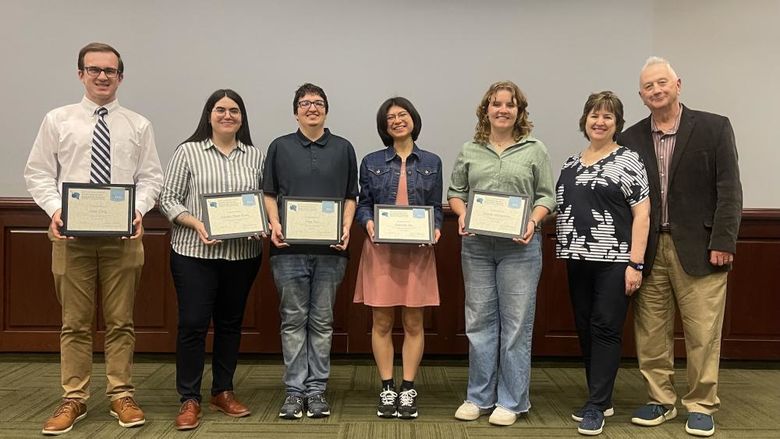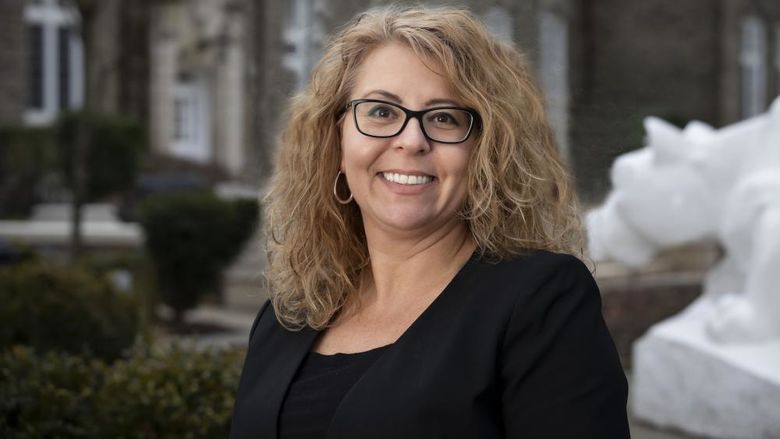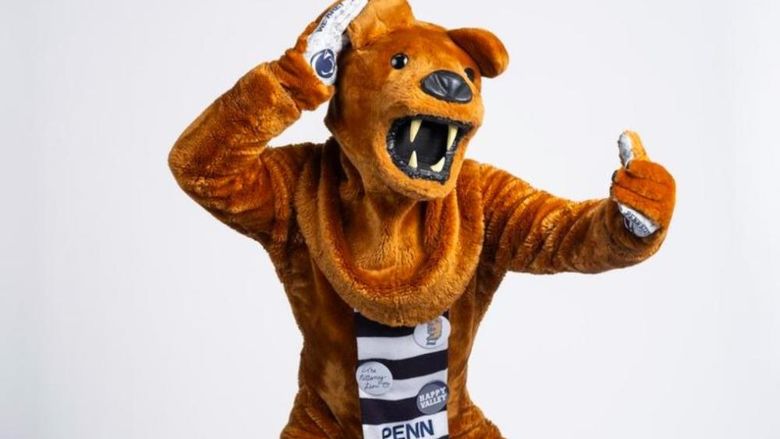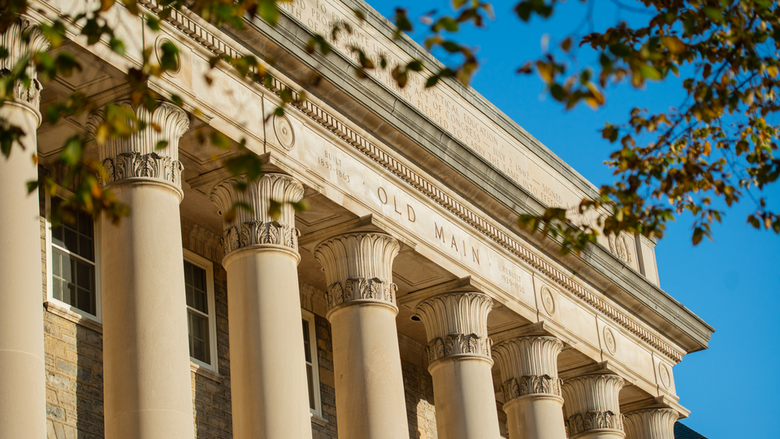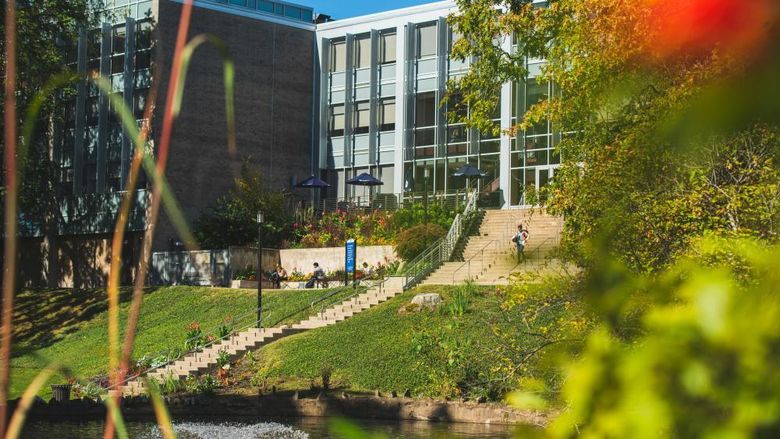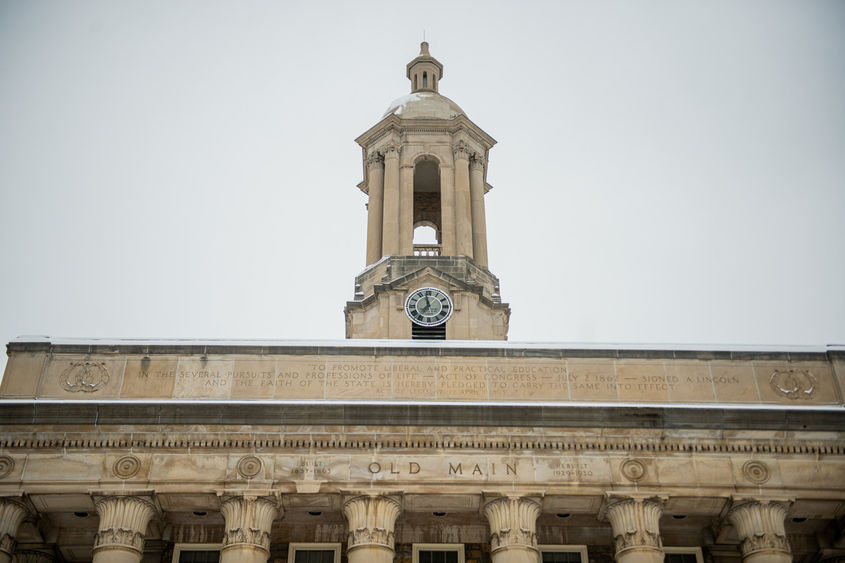
UNIVERSITY PARK, Pa. — A series of seed grants from the Office of the Vice President for Commonwealth Campuses (OVPCC) has provided Penn State campus leaders with the support to implement transformative initiatives and best practices that have been successful at other University campuses.
The funding was the result of a sharing session in fall 2022 organized by the OVPCC, during which each campus chancellor and another representative from their campus community — a “thought partner” who helped develop, refine or implement the practice — were invited to the University Park campus to present an overview of a unique or impactful leading practice their campus had developed.
The leading practices focused on themes like mental health and wellness; diversity, equity, inclusion and belonging; innovation, research and community engagement; student support and career development; and student success, while presentations detailed the implementation, challenges, opportunities and outcomes associated with the practices.
Penn State President Neeli Bendapudi championed the sharing session after seeing many of the best practices first-hand during her listening tour of Penn State’s campuses that began in spring 2022.
Following the session, chancellors were given the opportunity to work with their campus to identify and adopt best practices from other campuses. Seed funding was made available for campuses to incorporate one leading practice, but campus leaders were encouraged to incorporate multiple practices that they felt would benefit their campus community.
“The OVPCC is pleased to support the launch of these proven leading practices as a means to demonstrate the continued commitment to excellence, innovation and collaboration at our Commonwealth Campuses,” said Kelly Austin, vice president for Commonwealth Campuses and executive chancellor. “Sharing our ideas and successes allows us to provide the best possible student experience. We thank campus leaders for their willingness to work together on this promising initiative.”
Among the best practices adopted by Penn State campuses are:
Penn State Abington: “Accelerating Faculty Excellence through Diversity Hiring Initiatives”
Penn State Abington’s best practice, “Accelerating Faculty Excellence through Diversity Hiring Initiatives,” is a part of the campus’ collective focus on inclusivity in its hiring practices, said Chancellor Margo DelliCarpini.
“At Penn State Abington, our campus is collectively focused on inclusive excellence, and we are committed to proactive efforts that enable us to recruit and retain excellent faculty who are representative of our student body, therefore supporting the success of our diverse student population,” DelliCarpini said.
“Our leading practice proposal centers on improving hiring practices related not only to our local emerging cluster hire initiative, which aims at accelerating faculty diversity at Penn State Abington, but also as a campus-wide effort to create equitable and inclusive hiring processes and practices by providing search committees with the knowledge and skills needed to recruit and retain diverse faculty and support the cluster hiring initiative.”
The seed funding awarded to Penn State Abington will help establish a toolkit and training for hiring committees that will cover the creation of search committees, the development of recruitment materials and plans and the evaluation of candidates, she said.
Penn State DuBois: “Healing through Storytelling”
A podcast series with a focus on student wellness was the best practice adopted by Penn State DuBois. “Healing through Storytelling” features health and wellness topics relevant to students, such as stress management, meditation, balance and more.
“We are excited to build on our leading practice at Penn State DuBois,” Chancellor Jungwoo Ryoo said. “When we presented our mental health and wellness outreach programs in August, the response was highly positive and therefore encouraging.”
“We also learned about the very successful podcasting program at Penn State Shenango and had our ‘aha’ moment. We thought, ‘why not start a podcast series centering on individual healing through storytelling,’ as there are already well-documented benefits of podcasting combined with direct intervention,” Ryoo said.
Ryoo noted that the “Healing through Storytelling” series could benefit not only students at Penn State DuBois, but students at all of Penn State’s campuses who are interested in becoming more aware of mental wellness.
“We are thrilled to have the seed funding to implement our idea of adding storytelling to reach out to students to promote their mental health and wellness,” he said.
Penn State Greater Allegheny: “CREATE for Tomorrow”
At Penn State Greater Allegheny, “CREATE for Tomorrow” will emphasize Career Readiness, Entrepreneurial Activities and Transformative Experiences (CREATE), ensuring its students are prepared with the social capital, professional network, and marketable skills to succeed in the workforce, Interim Chancellor and Chief Academic Officer Megan Nagel said.
“Using the eight competencies identified by the National Association of Colleges and Employers (NACE), our project is a comprehensive approach to address career readiness and entrepreneurial activities,” Nagel said. “Through innovative course assignments, co-curricular experiences, and collaborations with external employers and community partners, our students will engage in activities they can present on their CREATE transcript to potential employers.”
Nagel said she was inspired by the entrepreneurial and career focused practices at Penn State Schuylkill and Penn State York. When envisioning the project, Nagel kept service area demographics and Greater Allegheny’s student body profile in mind, she noted.
“Given that 45% of our students identify as first-generation college students and 50% demonstrate high financial need, we believe this explicit and well-curated connection between the campus experiences and life beyond graduating from Penn State is truly imperative to maximize the value of their higher education,” she said.
Penn State Hazleton: Increasing Retention and Persistence Among Athletes at Penn State Hazleton
With the goal of increasing the rate in which student-athletes participate in their chosen sport from their first to second years on campus, Penn State Hazleton adopted as its best practice, “Increasing Retention and Persistence Among Athletes at Penn State Hazleton.”
At the heart of the effort is peer mentorship, said Chancellor Elizabeth J. Wright.
“The program will provide academic mentorship to first-year students in order to enhance their continuation of athletic participation,” Wright said. “Returning athletes will be recruited to serve as a peer mentor to first-year athletes, thus providing an important leadership development opportunity for them as well.”
Wright noted that increasing retention would also have a positive effect on a student-athlete's overall sense of belonging at the campus.
“Ensuring student-athletes can continue playing the sports they love is vital to our mission of providing the most meaningful and rewarding experience possible at Penn State Hazleton,” she said.
Additional initiatives adopted by campuses include:
Penn State Beaver — “High-Impact Career Preparation for Students”
Joining together the efforts of the campus’ Career Services, Continuing Education, and Beaver Valley LaunchBox to grow high-impact practices with the goal of connecting students more closely throughout pursuit of their degrees.
Penn State Berks — “Building Community through Penn State Berks”
Increasing presence within the surrounding community by engaging, informing and highlighting the campus’ existing and ongoing partnerships, as well as marketing opportunities to utilize the campus and its resources. The goal of this initiative is to increase visibility of the campus in the community and inform current and prospective students about opportunities for success at Penn State Berks.
Penn State Brandywine — “Campus Garden Expansion: New Opportunities, New Stories for Student Success”
Expanding the campus garden and adding a vertical growing, self-watering and self-fertilizing hydroponic or indoor garden system. The effort will also include integrating speakers into the Brandywine LaunchBox’s “Diverse Entrepreneurs Speaker Series” who are experts in various aspects of agriculture and retaining professional grant writing services to pursue funding in support of the garden’s continued growth.
Penn State Lehigh Valley — “Student Podcasting: Stories of Impact from Our Hispanic & Latino Communities”
A podcast series featuring students and community members that is designed to enhance understanding of Hispanic/Latino populations, cultures, and backgrounds and to also increase the sense of belonging among Hispanic and Latino students at Penn State Lehigh Valley. The initiative will also feature a series of workshops on podcasting and storytelling and the opportunity for students to earn a podcasting certification.
Penn State New Kensington — “Setting the SAGE: Building Greater Support for Athletes”
Increasing support for student-athletes to improve their individual experience, success and impact on the campus, including student-athlete-focused gatherings, training for faculty liaisons, coaches and team captains, and a communications campaign.
Penn State Schuylkill — “Digital Marketing Certification & Internship Program”
Consisting of two phases, this best practice would first provide students selected through an application with online training that leads to an industry recognized certification by the Digital Marketing Institute (DMI). Students who pass the DMI program will then be promoted to employers for internships in digital marketing/social media.
Penn State Wilkes-Barre — “Counseling Outreach Center”
The initiative would implement a Counseling Outreach Center program, primarily involving Rehabilitation and Human Services students, that offers events, activities and programs focused on student mental health. The Certified Peer Educator component of the program would allow students to complete a 12-hour certification process which would enable them to provide support to fellow students struggling with their psychological well-being. (Students would be monitored by the counseling center staff to ensure competency when offering support.)
